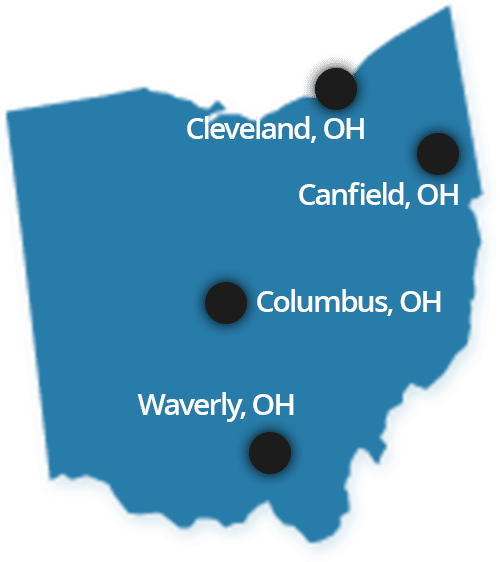Ohio workers’ compensation is an exclusive remedy for most injuries that occur on the job, but there are some limitations on workers’ compensation coverage. You may have heard that an Ohio worker injured through “horseplay” in the workplace can’t recover workers’ compensation benefits. That’s because engaging in horseplay isn’t part of your job, so these incidents aren’t considered to have occurred in the course of employment.

However, there are some important exceptions to this rule. Here are two important questions to ask to determine whether someone who was injured during horseplay may qualify for Ohio workers’ compensation benefits.
What is Horseplay?
There’s no definitive list of activities that are considered horseplay. Whether or not horseplay was involved in an injury may be one of the issues to be resolved in a contested workers’ compensation claim. Generally, the term refers to goofing around or roughhousing. Some possible examples include wrestling or pushing one another, throwing things at another person, riding on equipment not intended for that purpose, or engaging in practical jokes.
It’s important to note that not all horseplay is “play.” For instance, an actual scuffle that breaks out between employees or an ill-intentioned practical joke may be classified as horseplay.
Two Key Questions about Horseplay
When discussing workers’ compensation, there are two primary questions to be asked regarding the incident at hand. These can play a role in the possibility of workers’ compensation being awarded.
1. Was the Injured Person Participating Voluntarily in the Horseplay?
According to the Ohio Bureau of Workers’ Compensation (BWC), simply knowing that horseplay was involved in the injury doesn’t settle the question of eligibility. Instead, it must be determined whether the injured person chose to engage in horseplay. Generally, injuries suffered by the instigator of horseplay will not be compensable. But an “innocent victim” harmed through someone else’s horseplay may be eligible for workers’ compensation benefits.
For example, if two employees are actively engaged in a game of dodgeball with one of the items they’re packing for shipping and one is knocked off balance and hits their head, workers’ compensation benefits probably won’t be available. Both employees were voluntarily engaged in a non-work activity, and that activity caused the injury.
On the other hand, if a third employee who is passing through the area is struck and knocked off balance and hits their head, suffering exactly the same injury, that employee likely will be eligible for benefits–the employee passing through was not voluntarily engaged in horseplay and was passing from one area to another in the course of employment.
Similarly, a person who is injured in the process of staging a practical joke will typically not be eligible for compensation. On the other hand, one who opens a locker at work and is injured when a spring-loaded clown placed there by a co-worker as a joke bounces out and hits them in the face likely will be, since they were going about a normal workplace function and not participating voluntarily.
2. Was Management Involved in the Horseplay?
Ohio courts have determined that horseplay injuries on the job may be compensable if the company was aware of and acquiesced in the horseplay. The most commonly-cited case on this issue involved an incident at a corporate kick-off event for Coke Zero in 2007. Several employees were splashing in the water, tipping canoes, and getting one another wet when a manager approached the soon-to-be injured worker and commented that he wasn’t very wet.
After a response the manager interpreted as a challenge, he and another manager attempted to drag the worker into the water, ultimately slamming him to the ground and injuring his neck. The Ohio Appellate Court for the 12th District ruled that even if the worker had voluntarily participated in the horseplay, he might still be eligible for compensation. The court cited several prior cases, dating back to 1934.
It’s important to note that although management actively participated in the horseplay in this particular case, that isn’t necessarily required. The standard quoted and embraced by the court, in this case, is that a worker who voluntarily participates in horseplay may be eligible for compensation if that employee “is injured by horseplay commonly carried on by the employees with the knowledge and consent or acquiescence of the employer.”
In simple terms, the “knowledge and consent or acquiescence” could be as simple as the employer being aware that this type of horseplay took place regularly and not objecting.
What if My Case Doesn’t Fall Within an Exception?
If you were injured while voluntarily engaged in horseplay at work and your employer was unaware of or actively discouraged that type of activity in the workplace, you will generally not be eligible for workers’ compensation benefits in Ohio. But that doesn’t necessarily mean that no compensation is available.
Depending on the circumstances, you may have a direct claim against the person who injured you, a third party, or–in limited circumstances–even the employer. The best way to determine whether your workers’ compensation claim has been wrongly denied and what other options may be available to you is to talk to an experienced Ohio work injury lawyer right away.
At Plevin & Gallucci, we’ve been representing injured workers and helping them through the Ohio workers’ compensation claim process for nearly 50 years. We offer free consultations to make sure you have the information you need to make good decisions about your next steps.
To learn more, call 855-4PLEVIN or fill out the contact form on this site right now.
RELATED:

